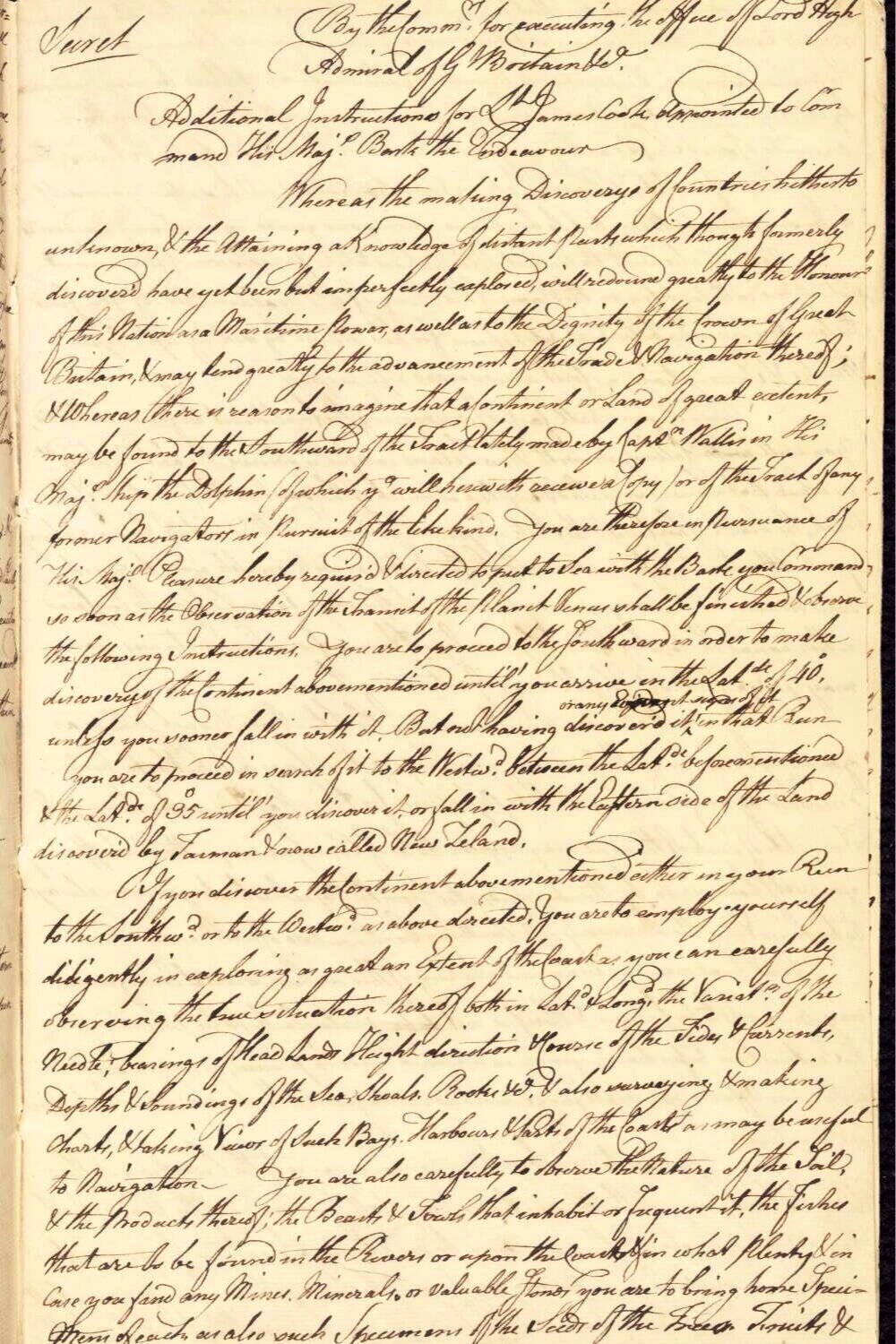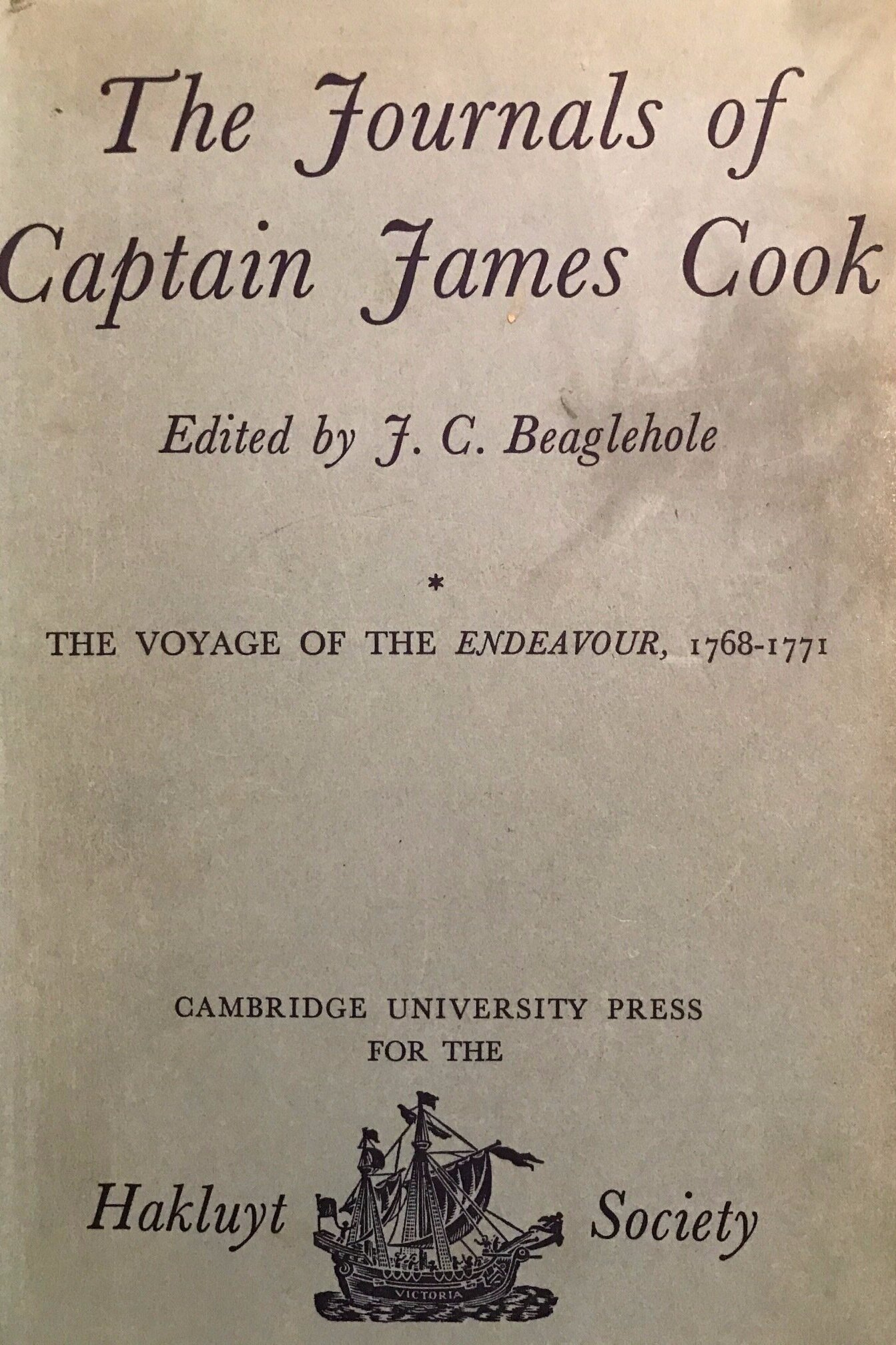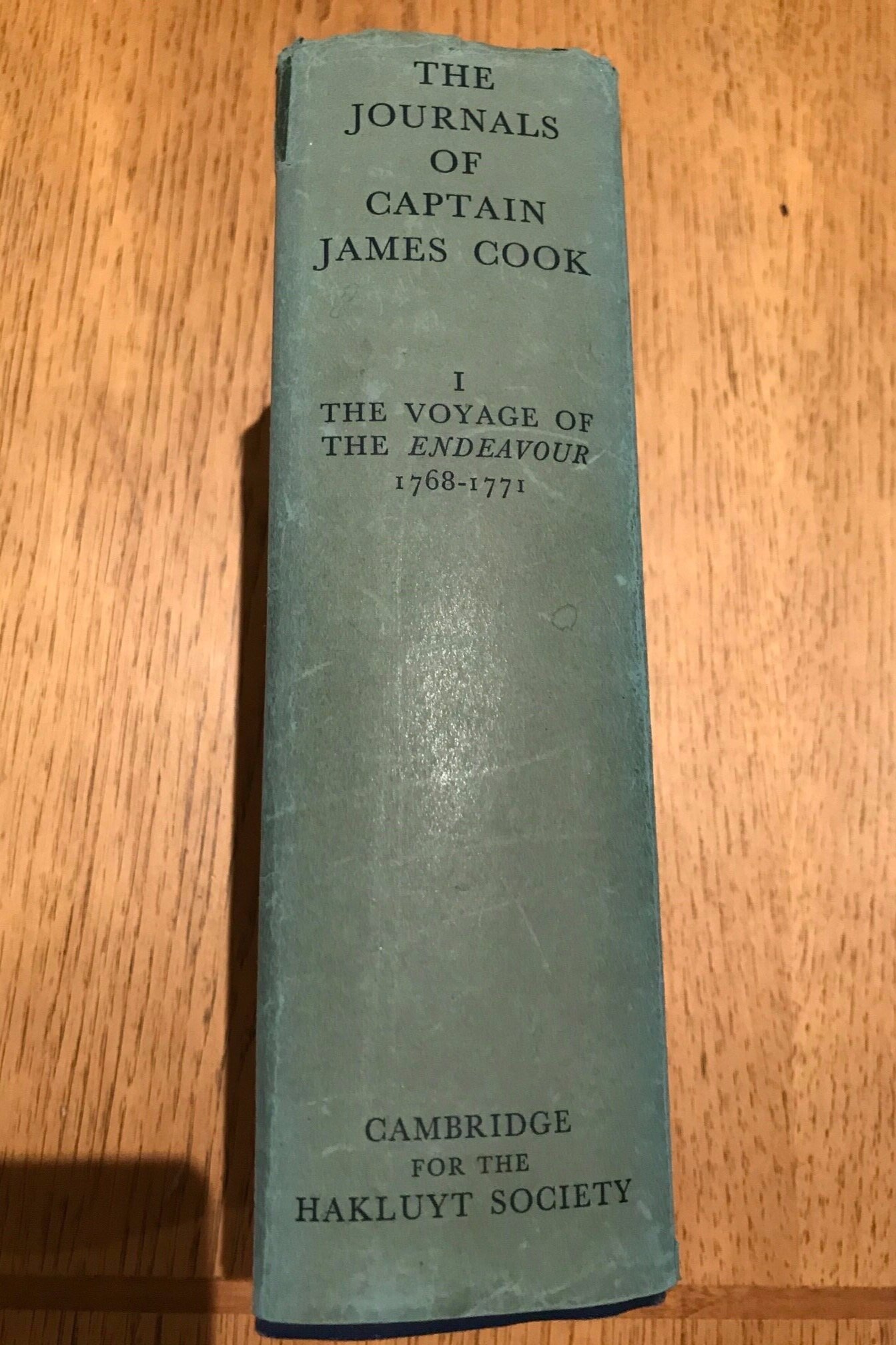Thanks to Mr Pascoe, we are all historians now, even Stan Grant and Peter FitzSimons
Stan Grant’s opinion piece in The Sydney Morning Herald, “Between the ship and the shore: The Captain James Cook I know”, on April 28, 2020, is another distortion of the historical facts by a writer who appears to be pushing the typical, guilt-ridden, victimhood narrative that Cook’s discovery and claim of possession of the eastern half of New Holland for the British Crown was somehow bad for Australians.
Writers such as Stan Grant and Bruce Pascoe amongst others, want to push the victimhood narrative that a great injustice, the first of many, was committed when Cook failed to follow orders on his arrival in Botany Bay on April 29th 1770. As Stan Grant laments,
“Cook didn’t worry enough to not claim this country for Britain without our consent. That injustice stands. In the words of the Uluru Statement from the Heart it forms "the torment of our powerlessness".
Well, the Quiet Australians are not buying this argument that our wonderful country’s existence is based on injustice – the historical records show that the colony of New South Wales was settled by the most progressive peoples of the Enlightenment in 1788, and developed into one of the most just, egalitarian, free, fair and prosperous, and desired, countries in the history of mankind. That is why millions of foreigners still apply each year to come to settle in this land.
All Stan Grant can seem to offer is a ‘shakedown’ of the Australian public by pushing the victimhood narrative that a great injustice has been committed and the only way to reconcile it is for you, the modern Australians, to sign up to his Uluru Statement that will provide Aboriginal people with special, race-based powers in our Constitution.
Stan’s Bending of the Historical Facts to suit his guilt victimhood narrative
As Stan Grant writes,
“Cook came here [the Australian continent or New Holland as it was known then] with secret instructions, orders of the crown to "make discovery" and "cultivate friendship and alliance" with the "natives". Cook was instructed to take possession of this land "with the consent of the natives".
- No he didn’t. If one actually reads Cook’s ‘secret instructions’, one finds that they predominately relate to the discovery of the then unknown, ‘Southern Continent,’ which was believed to exist directly south from Tahiti in the Pacific, some 6000km from the East Coast of New Holland. The actual ‘secret instructions’, which Stan Grant selectively misquotes, in fact ordered Cook to :
“…Whereas there is reason to imagine that a Continent or Land of great extent, may be found to the Southward…You are to proceed to the Southward in order to make discovery of the Continent abovementioned until’ you arrive in the Latitude of 40°, unless you sooner fall in with it…
…But not having discover’d it or any Evident sign of it in that Run you are to proceed in search of it to the Westward between the Latitude beforementioned and the Latitude of 35° until’ you discover it, or fall in with the Eastern side of …New Zeland. If you discover the Continent abovementioned…You are also with the Consent of the Natives to take Possession of Convenient Situations in the Country… But if you shall fail of discovering the Continent beforemention’d, you will with upon falling in with New Zeland carefully observe the Latitude and Longitude in which that Land is situated and explore…the Coast… [then] you may judge the Most Eligible way of returning home. You will also observe with accuracy the Situation of such Islands as you may discover in the Course of your Voyage that have not hitherto been discover’d by any Europeans and take Possession for His Majesty…”
We know that Cook did not discover the ‘Southern Continent or Land’, where he was instructed to, ‘with the Consent of the Natives to take Possession of Convenient Situations in the Country’, because in fact there was no such continent to be found there in the South Pacific.
The ‘secret instructions’ then simply instructed him to choose his way home after surveying New Zealand and, if he discovered any other ‘Islands’ during the ‘Course’ of his ‘Voyage’, he was to ‘take Possession for his Majesty’.
There were no additional specific instructions with regard to seeking permission from any natives he may have found on ‘such Islands’ - his discoveries in New Zealand, the east coast of the island continent of New Holland (NSW) and Possession Island fall into this, other ‘such islands’, category.
So, Stan Grant is attempting to transfer Cook’s instructions and obligations with regard to the unknown Southern Continent or Country, where he was obliged to seek the ‘Consent of the Natives to take Possession of Convenient Situations in the Country’, to Cook’s landing on the known island of New Holland, when he landed there, at Botany Bay, in 1770.
In fact, the British Admiralty included no such specific instructions, or obligations, on Cook with his dealing with the natives of New Holland. Indeed, it appears the Admiralty was only interested in Cook’s voyage to Tahiti, the mythical ‘Great Southern Land’ and New Zealand. New Holland was not even mentioned in the ‘secret instructions’. So why would the Admiralty give specific instructions to Cook to seek the ‘Consent of the Natives to take Possession of Convenient Situations in the Country’ [of New Holland], if they didn’t even bother to give him instructions to go there?
Cook’s route south from Tahiti in his unsuccessful search for the mythical (and non-existent) ‘Southern Continent’, which he was to take possession of, ‘with the consent of the natives’.
Stan’s Mabo Fantasy
Stan Grant also has another ideological stab at Cook by implying that Cook stole Eddie Mabo’s land. Stan writes,
“We need to find that better nation together. As we remember Cook, I remember too Eddie Mabo who fought all the way to the High Court to prove the land Cook claimed was his land.“
- Wrong again - Cook didn’t claim Eddie Mabo’s land, the island of Mer (Murray Island), which is in the Torres Strait between mainland Queensland and Papua New Guinea.
In fact, Eddie Mabo and his islanders were of Melanesian descent, not Australian Aboriginal descent and Mabo’s ‘land’ had only been annexed by Queensland in 1879, long after many Australians of British descent had already started becoming ‘indigenous’ Australians in their own way after two or three generations in this land since arriving from 1788. (Even Noel Pearson concedes this - see from 03:56 here)
Cook only claimed for the British crown, the land south from Possession Island and down along the east coast of New Holland, which he named New South Wales. He did not claim the other Torres Strait Islands to the north of Possession Island, which included Eddie Mabo’s ancestral island of Mer.
This is one of the uglier sides to the arguments put forward by Aboriginal political commentators like Stan Grant. Their political proposals have a very racist undercurrent, whereby Australians of Melanesian descent, who rocked-up and joined Queensland in 1879 and then joined the rest of us Australians Federally in 1901, will have superior and unique, constitutionally recognised, rights under The Voice and Uluru Statement proposals, when compared to us other Australians who colonised Australia from 1788, or 2 or 3 generations earlier. So why are Torres Strait Islanders considered “Indigenous Australians”, but Australians born between 1788 and 1879 not so? The only difference we can see between the Torres Strait Islanders and these Australians, born in Australia with a heritage going back prior to 1879, is the colour of their skin.
Australians have spent decades eradicating racism in this country and now policies are being advocated by people like Stan Grant, who seem to want ‘racist provisions’ to be re-enshrined with our Constitution.
A Bloodless Landing
Stan Grant claims,
“Before Cook had even stepped ashore he had shed Aboriginal blood.”,
and then he goes onto reference writer Peter FitzSimons with,
“FitzSimons writes, ‘before landing at Botany Bay he [Cook] actually fired his musket and hit with lead-shot one of the warriors blocking his way’.”
- No, wrong again Stan
We checked Cook’s journal entry for that day - the definitive Hakluyt Society 1955 Edition by J.C. Beaglehole – extract of April 29th 1770 here, and it appears that Stan Grant and Peter FitziSimons, like Mr Pascoe, are just making stuff up to suit their depressing narrative about how bad Cook’s actions were.
Cook says in his journal that only he* fired on that day – if we take this literally, one might assume that this First Contact with the Aborigines was of the utmost importance to Cook and he wanted it to go well, without violence. Hence, perhaps he decided that he needed to be in full control of the musket fire-power, if it was to be used at all?
Cook writes that he only fired his* musket after his landing was opposed by the Aborigines, who used threats, stone throwing and spear throwing to prevent his party landing. The first shot was aimed to ensure the Aborigines were missed and no harm was done; the second shot was small-shot (eg very small, non-fatal pellets) designed only to bruise and sting and it had no apparent effect in this case, and the third shot caused the Aborigines to retire. There is no mention of serious injury or death, and no mention, as Stan Grant claims of, ‘Aboriginal blood’ being ‘shed’.
Joseph Banks, who was there also with Cook, records these same incidents in his journal entry of, 1770 April 28 - Botany Bay,
“A Musquet loaded with small shot was now fird at the Eldest of the two who was about 40 yards from the boat; it struck him on the legs but he minded it very little so another was immediately fird at him; on this he ran up to the house about 100 yards distant and soon returnd with a sheild.”
Joseph Banks continues,
“In the mean time we had landed on the rock. He immediately threw a lance at us and the young man another which fell among the thickest of us but hurt nobody; 2 more musquets with small shot were then fird at them on which the Eldest threw one more lance and then ran away as did the other.”
So Stan, these Aborigines on the beach that day were tough and courageous, and being hit with Cook’s small shot appeared to be no more than just a stinging irritation to them. Cook’s small shot was much less life threatening than the Aboriginal spears, which could be deadly, that were hurled at Cook and his party.
These Aborigines, they gave as well as they got - both sides made their point and no-one was seriously injured or killed. As Australians, we should be free to read the historical descriptions of what happened on the beach that day and develop our own views of its consequences, if any. It was what is was. We do not need ‘faux-historians’ to selectively quote, and even re-write, the historical records to promote Aboriginal victimhood and supposed past injustices that are just not warranted, or relevant today..
Stan Grant’s writing tone also creates the feeling that we, in modern Australia, are somehow obliged to join with Stan and acknowledge that we are complicit, given that we are ‘benefitting’ from what Stan says, is a great historical ‘injustice’.
We of course wish Stan well in his battle within himself to reconcile his own thoughts and feelings on these issues, but we believe that his apparent chosen path of victimhood, and lamenting of perceived historical injustices, is a pointless and damaging exercise that can only lead to feelings of failure and mental health issues. We will not join with him on that path.
And to distort the historical records to reinforce this victim mentality is doubly bewildering and unforgivable, especially from an educated, privileged and articulate man who should be leading, not wallowing.
* When Cook says in his journal, “… I fired a musket…”, he may have not been writing literally but rather as the commander - he does not mean he personally fired a musket, but rather that he ordered a musket to be fired.










